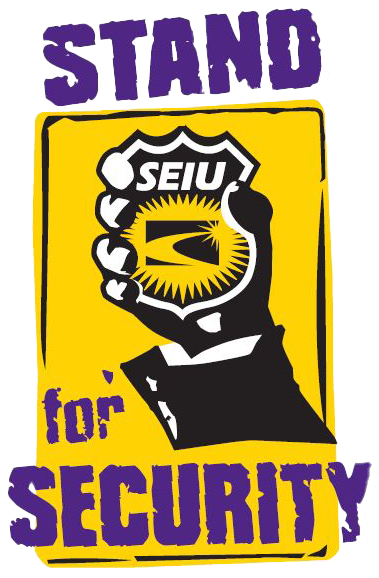In a groundbreaking victory that will pave the way for similar gains by other workers in Minnesota, private security officers in Minneapolis and Saint Paul won access to affordable health insurance, higher wages, improved training and equipment, and sick leave in a tentative contract agreement reached late last night with their employers.
"I have four kids without health insurance, so this contract will make all the difference for my family," said Howard Worley, a security officer at Town Square in Saint Paul and a member of the union bargaining committee. "Now we need to keep it going and win affordable health care for everyone who stood with us and for all working families in Minnesota."
"I congratulate the security officers and companies on reaching a contract agreement that will ensure the health and safety of those who work to keep our city safe every day," said Minneapolis Mayor R.T. Rybak. "Everyone in the Twin Cities won today," added Saint Paul Mayor Chris Coleman, "I hope that this marks the beginning of a broader solution to the health care crisis in our state."
The five-year agreement, which will be put to a ratification vote on Saturday with a recommendation by the bargaining team for approval, includes the following improvements:
- Affordable health care for full-time security officers for the first time ever.
- Single Coverage reduced to $20 per month. The employer's premium contribution for single coverage will increase from as little as 57% now to 96% by the end of the contract, while the monthly cost to employees will drop from as much as $190 per month now to $60 per month immediately and $20 per month by the end of the contract.
- Family Coverage reduced to $260 per month. The employer's premium contribution for family coverage will increase from as little as 20% now to 65% by the end of the contract, while the cost to employees to cover themselves and their children will drop by as much as $570 per month and will be capped at $260 per month for the duration of the contract.
- Major wage increases of 25% - 32% that begin to lift working families out of poverty. Wages will increase by at least 50 cents in each year, with some officers seeing increases of up to $3.20 over the course of the contract.
- A process for building stronger training and equipment standards to improve public safety in Minneapolis and Saint Paul. Officers at Block E in downtown Minneapolis have already been fitted for bullet-proof vests as a result of heightened public awareness due to security officers' efforts.
- Sick days that will allow full-time security officers to access the health care they need to stay healthy at work.
The tentative bargaining agreement with security contractors ABM, Allied Barton, American, Securitas, and Viking comes after officers held a one-day strike in February highlighting the need for affordable health care for all Minnesotans.
"This victory for security officers is a major step forward in restoring Minnesota's middle class," said Javier Morillo, president of SEIU Local 26. "Now, working families in the Twin Cities are prepared to keep up the fight to show what can and should be done to ensure everyone in our state has access to quality, affordable health care."
